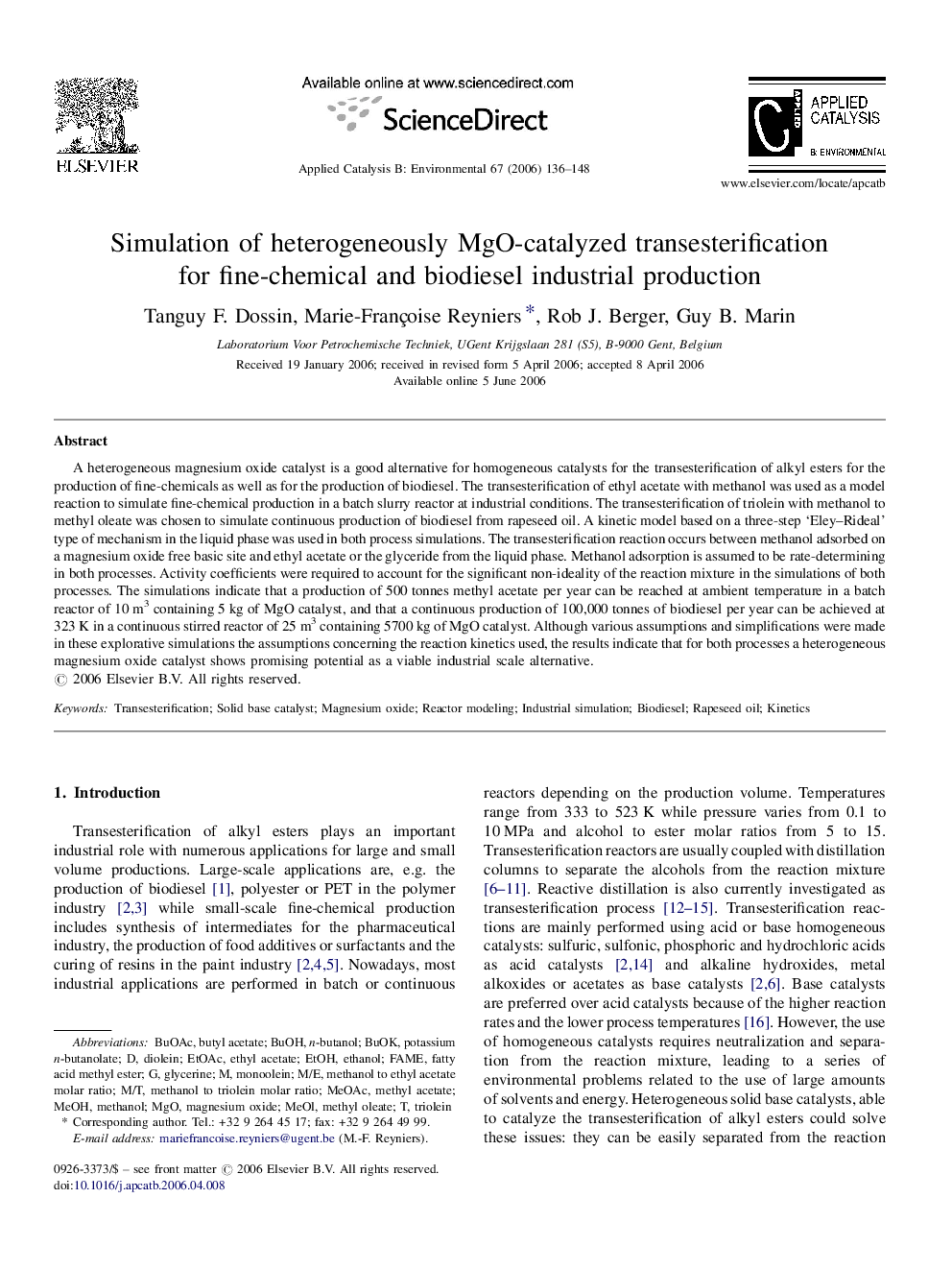| Article ID | Journal | Published Year | Pages | File Type |
|---|---|---|---|---|
| 48945 | Applied Catalysis B: Environmental | 2006 | 13 Pages |
A heterogeneous magnesium oxide catalyst is a good alternative for homogeneous catalysts for the transesterification of alkyl esters for the production of fine-chemicals as well as for the production of biodiesel. The transesterification of ethyl acetate with methanol was used as a model reaction to simulate fine-chemical production in a batch slurry reactor at industrial conditions. The transesterification of triolein with methanol to methyl oleate was chosen to simulate continuous production of biodiesel from rapeseed oil. A kinetic model based on a three-step ‘Eley–Rideal’ type of mechanism in the liquid phase was used in both process simulations. The transesterification reaction occurs between methanol adsorbed on a magnesium oxide free basic site and ethyl acetate or the glyceride from the liquid phase. Methanol adsorption is assumed to be rate-determining in both processes. Activity coefficients were required to account for the significant non-ideality of the reaction mixture in the simulations of both processes. The simulations indicate that a production of 500 tonnes methyl acetate per year can be reached at ambient temperature in a batch reactor of 10 m3 containing 5 kg of MgO catalyst, and that a continuous production of 100,000 tonnes of biodiesel per year can be achieved at 323 K in a continuous stirred reactor of 25 m3 containing 5700 kg of MgO catalyst. Although various assumptions and simplifications were made in these explorative simulations the assumptions concerning the reaction kinetics used, the results indicate that for both processes a heterogeneous magnesium oxide catalyst shows promising potential as a viable industrial scale alternative.
